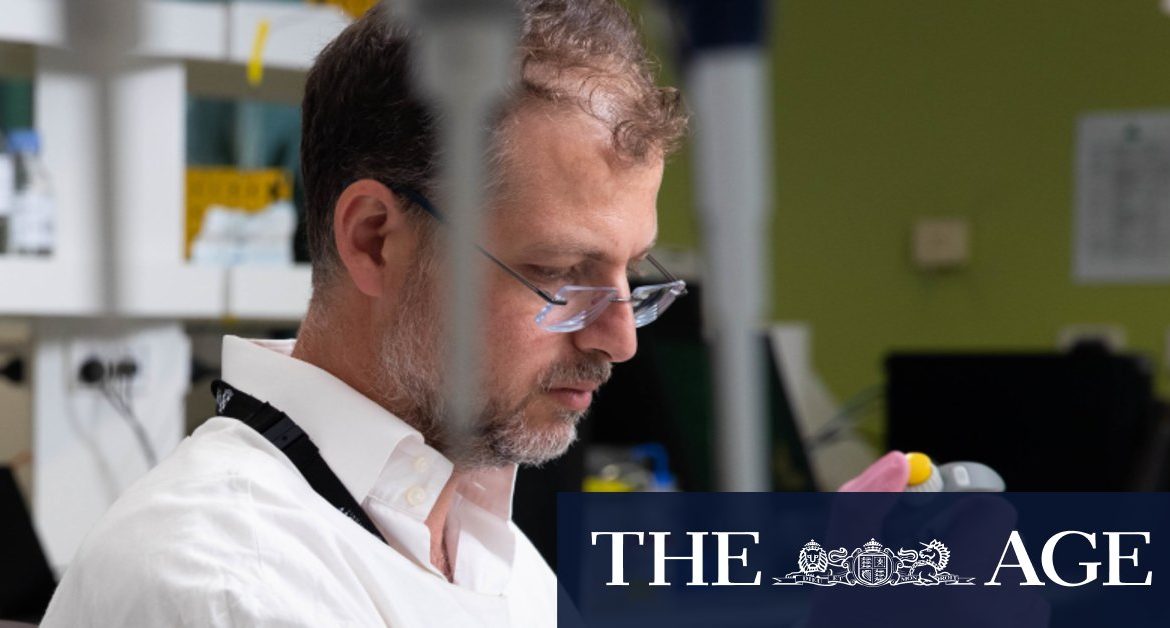Now on the other side of treatment – and on the other side of the world at the University of NSW’s Lowy Cancer Institute – Dr Vittorio was, on Thursday, awarded the career development fellowship at the Premier’s Awards for Outstanding Cancer Research for his groundbreaking work in children’s treatment with the Children’s Cancer Institute.
His research focuses on the differences between how normal cells and cancerous cells behave. One of his key discoveries was that cancerous cells contain high levels of copper, which protect the cells from the body’s immune system.
He is now examining how drugs used to expel copper from the body might be used to improve children’s cancer treatment, after international trials on breast cancer patients proved successful.
The pivot to children’s research came after his own experience with treatment, Dr Vittorio says. He married his wife, Manuela, in 2010 with plans to start a family – they now have three children – and his time in the oncology ward made him resolve to improve the process for children with cancer.
“It is awful for them. When you are there, you really see people suffering; you see people die,” he says.
Loading
“A problem some people in research have is they don’t have contact with the patients … we look at tubes but you have to remember the point of what you are doing.”
He now advises his students to volunteer at children’s cancer wards to understand the value of their work.
The annual Premier’s Awards for Outstanding Cancer Research have been awarded online this year because of the pandemic.
Professor David Currow, chief executive of the Cancer Institute NSW, which runs the awards, says Dr Vittorio’s research gave hope to children with cancer and their families.
Loading
“We have made significant advances in treatment for many childhood cancers, but for … aggressive brain cancers, outcomes remain poor,” he says.
His work has created a new avenue to explore for childhood treatment and has also helped the research community to better understand the role of metals in adult cancers, such as pancreatic and breast cancer, he adds.
Dr Vittorio is grateful for the recognition – “you don’t get many awards” being a scientist in Italy but he has received two since moving to Australia, he says – and hopes money saved on the ceremony goes into research.
“The thing about awards is you just get one name, but behind the name is so much work and many others,” he says, stressing the importance of international partner universities as well as his team at UNSW, where he applied for a job in 2013 after his wife “fell in love with Sydney” on their honeymoon. He says he trusts his team “entirely” and accolades like these are really also theirs.
Although, as jokes fly in his lab, there does seem to be one thing the Italian is not taking advice on from Australians. A student asks: “Hey Orazio, what do you think about pineapple on pizza?”
His face drops: “If you want to finish your PhD … “
Mary Ward is a health reporter at The Sydney Morning Herald.
Most Viewed in National
Loading







